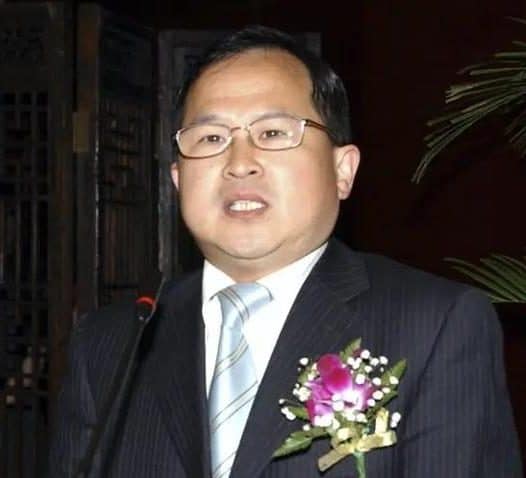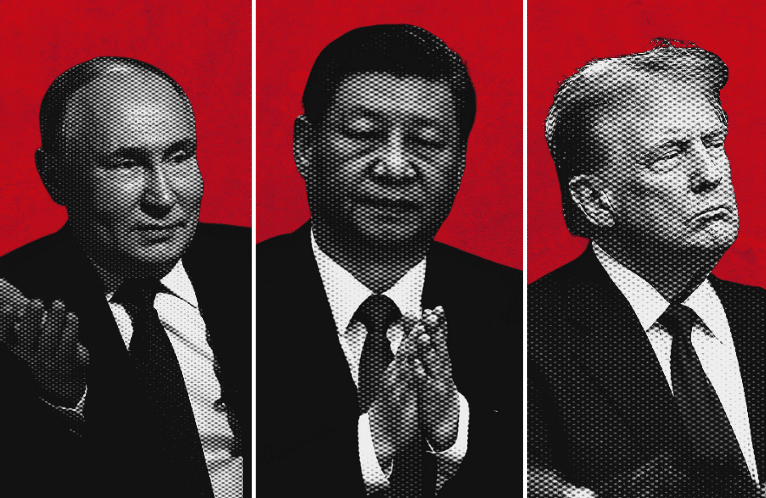Likes for Taylor, Disdain for Musk

It isn’t often you get major policy thinkers from within the People’s Republic of China weighing in on celebrity endorsements of U.S. presidential candidates. Hu Wei submitted this article to our Chinese-language site before Elon Musk’s tweet telling Taylor Swift “I will give you a child” was picked up by major news outlets and (rightly) interpreted as a threat.
Hu’s move in this piece is to link Musk’s lack of values, strategy, or leadership to the absence of these qualities in Donald Trump. Including Musk’s tasteless remarks toward Swift wouldn’t alter the logic of Hu’s position.
Although Hu makes a connection between, on the one hand, maleness, the tech industry, and instrumental rationality and, on the other hand, femininity, the arts, and affect that might put some readers off, it is interesting that these connections are made to criticize the irrationality toward which ‘male’ rationality leads.
The criticisms of the Trump administration and current campaign fall short of an endorsement for Harris. The message from Hu, however, is clear – assuming Harris represents an extension of the Biden administration, a Harris administration is far more preferable than a return to the days of the trade war.
With so many Western writers trying to conjure Beijing’s probable preference in the U.S. election, it is valuable to have a prominent figure like Hu provide his position explicitly.
-Nick Zeller, Managing Editor
1. On September 10, after the first televised debate in the U.S. presidential election between Donald Trump and Kamala Harris, American pop star Taylor Swift publicly announced her endorsement of Harris for president on her Instagram.
I’ve never been interested in pop music, nor do I care about pop stars, and I’m certainly not a Taylor Swift fan. But after this, I now have a new respect for Taylor Swift and feel compelled to praise her! In contrast, Elon Musk voiced his continued support for Trump: “…when it comes to getting things done, not just saying nice-sounding words, I strongly believe Trump will do a far better job.”
Compared to Musk’s admiration for Trump, I’m filled with even more love for Swift—even though I used to think highly of Musk and still recognize his irreplaceable contributions to humanity. Years ago, I would frequently say in speeches that the “two horses in China” [USCNPM: Ma Yun of Alibaba and Ma Huateng of Tencent] were not even one ten-thousandth as impressive as the “one horse” in the United States. Their respective missions and visions are worlds apart. However, it now seems Musk is missing a fundamental quality: values. This is precisely the shining point I see in Taylor Swift—she has the right values.
When Musk stood alongside Trump earlier and showed such servility, I was deeply disappointed and puzzled. His great image in my mind has collapsed instantly! As a leader of technological and industrial revolutions, why would he support a criminal suspect, a shameless liar, and a neurotic dictator? It can only be said that Musk’s views on life, values, and the world are seriously flawed. He praises Trump for his ability to get things done, but if someone lacks the right values, wouldn’t their ability to get things done cause even greater harm?
The difference between Musk and Swift may reflect a broader distinction between tech-minded male individuals and art-oriented female individuals. In China, I’ve noticed that many male tech professionals often appear to be value-free, or their values are completely distorted. This is the inevitable result of prioritizing instrumental rationality over value rationality. Of course, this doesn’t mean that those in the humanities or arts necessarily have better values—plenty of opportunists exist in these fields in China as well. I’m unsure if all male tech professionals in the United States are like Musk, but I am impressed by the integrity and courage shown by American artists when making political decisions. Back in 2016, dozens of Hollywood artists publicly declared their opposition to Trump, and recently stars like Celine Dion and Beyoncé have also voiced their opposition to him. Taylor Swift’s statement is just the latest example. Moreover, beyond these artists, the American academic community has also spoken out, with 16 Nobel laureates in economics recently signing a letter opposing Trump’s reelection. This is something that Chinese artists and scholars should reflect on and learn from.
2. Why am I against Trump? At its core, it’s because Trump lacks democratic values. His admiration of and praise for modern-day dictators are fatal flaws for a U.S. president.
The distinction between Trump and Biden is precisely about democratic values—or more broadly, about differences in strategy, leadership, and values. These are crucial elements for a U.S. president. Many thought that Biden’s rise to power would benefit U.S.-China relations, but I argued the opposite. Although Trump took a “heavy-handed” approach toward China, he was misguided because he had three fatal flaws:
No strategy—he abandoned Obama’s “Rebalance to Asia and the Pacific” and “Two-Ocean” strategies
No leadership—he offended all American allies, including the EU, Canada, and Japan
No values—he cared only about money, regardless of whether it was from friends or foes. He even wanted to revert the U.S. to isolationism.
In this regard, Trump is not on the same level as Biden at all. When Biden came into office, “America was back,” and within just one or two years, he rebuilt America’s strategy, leadership, and values, restoring the country as a global beacon. This is something Trump could never achieve.
I am not an American voter, and while I’ve long studied political issues, I don’t favor either the Democratic or Republican parties. Whoever wins has no personal bearing on me, and a stable two-party system is in the best interest of the United States. I only oppose Trump as an individual, and Trump is an anomaly within the Republican Party. His prominence in the GOP is indeed a tragedy—unprecedented in over 200 years of American elections. It’s a product of representative democracy confronting populist challenges in the social media age, highlighting the crisis that the American democratic and party systems face in the age of the information revolution. Figuring out how to solve this crisis and stop the rise of politicians like Trump is a major test for American democracy, and the current efforts to block Trump represent the first step in this test.
It must be admitted that Trump’s competitors are not perfect; some even have disappointing flaws. But anyone taking office would be better than Trump. Likewise, American democracy is imperfect, and the country faces many social problems. But if Trump were to win again and become American “Putin” bent on overturning the democratic system, that would be a far greater disaster.
3. From the start of this U.S. presidential election, I’ve never believed that Trump will win. Not because I have any special information or intelligence, nor do I have any supernatural foresight. It’s simply because I believe that the United States, as a mature democracy, has the strength to eliminate a “democracy destroyer” like Trump. Biden’s decision to step down, senior Republicans publicly supporting the Democrats, and Taylor Swift’s stepping up—along with the popular slogan from the last election, “Anyone but Trump”—all reflect this strength in some way.
Just as the Biden-Trump contest in 2020 was a battle over values, the Harris-Trump contest today is still a battle over values. In this context, Taylor Swift’s support for Harris and Musk’s support for Trump mark a clear divide in values. That’s why I praise Swift and despise Musk, though I’m not yet saying that Musk is completely devoid of values. I hope Musk will wake up and stand on the right side of history.
I’m betting Harris will win!
Hu Wei is a renowned Chinese political scientist. The Monitor has published his op-eds “The Time History Has Left China Is Running Out” and “Possible Outcomes of the Russo-Ukrainian War and China’s Choice” in 2023 and 2022 respectively. Both have attracted international attention and caused our Chinese language website to be blocked by the Chinese censors.
The views expressed in this article represent those of the author(s) and not those of The Carter Center.
Author
-

Hu Wei is a well-known political scientist in China.







